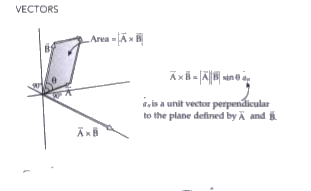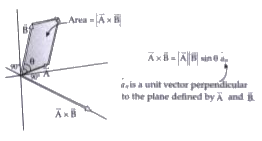The cross product of two vectors gives a vector perpendicular to the plane containing the vectors.

If →a and →b are non-zero vectors, then →a⋅(→a×→b)= _________
0
→0
→a
→b
The correct Answer is:A
Step by step video, text & image solution for The cross product of two vectors gives a vector perpendicular to the plane containing the vectors. If vec(a) and vec(b) are non-zero vectors, then vec(a)*(vec(a)xxvec(b))= _________ by Maths experts to help you in doubts & scoring excellent marks in Class 12 exams.
Updated on:21/07/2023Similar Questions
Knowledge Check
The cross product of two vectors gives a vector perpendicular to the plane containing the vectors.

The angle between →a×→b and →b×→a is ___________.A0BπCπ2Dπ4The vectors →a and →b are perpendicular if :
A→a.→b=0B→a.→b≠0C→a×→b=→0D→a×→b≠→0The vector product of two vectors →Aand→B is zero. The scalar product of →Aand(→A+→B) will be
AzeroBA2CABDA2+AB
If a vector →a is perpendicular to two non-collinear vector →b and →c , then →a is perpendicular to every vector in the plane of →b and →c .
View SolutionIf a vector →a is perpendicular to two non collinear vectors →b and →c, then →a is perpendicular to every vector in the plane of →b and →c
View SolutionIf →c is the unit vector perpendicular to both the vector →aand→b, then what is another unit vector perpendicular to both the vectors →aand→b ?
View SolutionAssertion: Vector product of two vectors is an axial vector.
Reason: If →v= instantaneous Velocity, →r= radius vector and →ω= angular velocity, then →ω=→v×→r.
View SolutionIf →aand→b are two unit vectors, then the vector (→a+→b)×(→a×→b) is parallel to
View Solution
